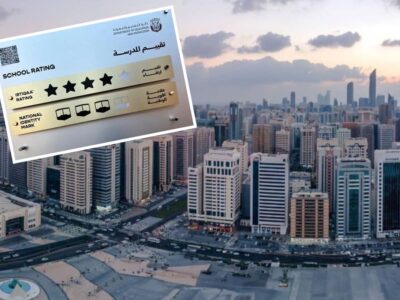British universities in the UAE are set to benefit from the relaxation of student visa rules, according to experts.
Expatriate students are now allowed to bring their families to the country in line with a recent series of updates to UAE’s residency and visa regulations.
According to Joe Hepworth, CEO of trade and investment advisory firm British Centres for Business, UK-founded education establishments with UAE campuses could “offset” domestic coronavirus-induced losses by boosting student uptake in the emirates.
Referring to Britain’s current high-severity national lockdown, Hepworth said that UK universities and schools in the UAE were in an “advantageous position” compared to their British parents which are battling a ban on students attending physical classes.
“This [new law] is another marketing tool for their overseas student target markets, such as India and China, who would normally look to go to the UK to study and might now be attracted to their UAE campuses instead,” Hepworth, pictured below, said.
The UAE has long been home to British universities such as Heriot Watt, Middlesex University, The University of Birmingham and The University of Bradford.

The Emirates are also home to range of top British business schools, such as London Business School, City University of London, Cass Business School and Hult International Business School.
Chris Taylor, head of student recruitment at University of Birmingham Dubai (UoBD), told Arabian Business: “From what we understand of the opportunity at this early stage it looks very encouraging. This type of opportunity would naturally be attractive to overseas students, which further supports UAE ambitions to become one of the leading destinations for higher education.”
UoBD, which first set up in Dubai International Academic City in 2017, is set to open a second Dubai campus in September for up to 2,900 students.
Taylor added: “Not every study destination has such an offer, hopefully putting the UAE at the top of shortlist for those who would want to travel to study, with their families. We welcome applications from students in this position.”
Ammar Kaka, provost and vice principal of Heriot-Watt University Dubai, said: “International students already make up a sizeable segment of our overall student enrolment. We have students who travel from Africa, Middle East and South Asia to pursue higher education with us, across a variety of disciplines and we anticipate greater numbers now in the future.”
The student residency law from the UAE Cabinet will “consolidate the country’s international position as a leading education and work destination, reinforcing its competitiveness in regional and global indexes related to residency and entry visa flexibility,” according to a statement carried by WAM, the UAE news agency.

According to Hepworth, the newly relaxed student visa rules could also lend local UAE-founded universities the opportunity to mop up demand that may have previously gone to UK-based universities.
“As British universities have largely been closed for contact learning since last spring, there is a chance for Dubai and Sharjah universities to pick up registrations as their doors remain open,” he said.
In November, UAE’s Vice President, Prime Minister and Ruler of Dubai, Sheikh Mohammed bin Rashid Al-Maktoum, revealed that the Golden Visa, which grants holders 10 years’ residency in the UAE, will also be given to outstanding graduates from accredited universities in the country (with a GPA of 3.8 or more) and to top high school graduates and their families.
Golden residency will also be granted to holders of specialised degrees in artificial intelligence, big data, or epidemiology and viruses, announced Sheikh Mohammed.
It comes as part of continued efforts to attract top talent to the UAE. In September, Dubai launched a retirement programme for resident expatriates and foreigners over the age of 55 granting them five-year renewable residency.
In 2019, the UAE opened long-term residency permits to eligible foreign executive directors if they earned a monthly salary of AED30,000 ($8,200).








